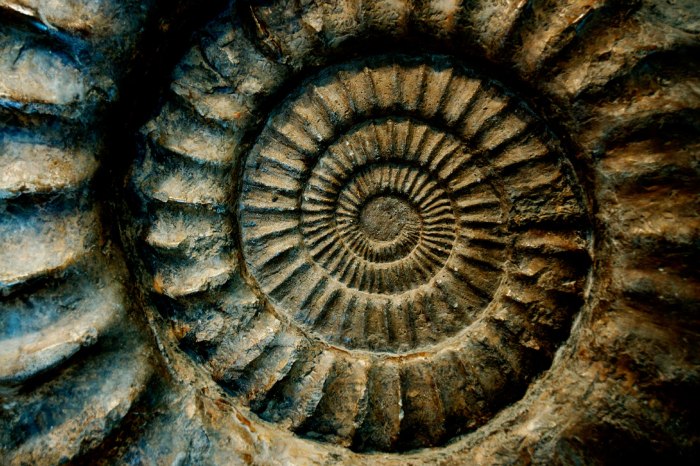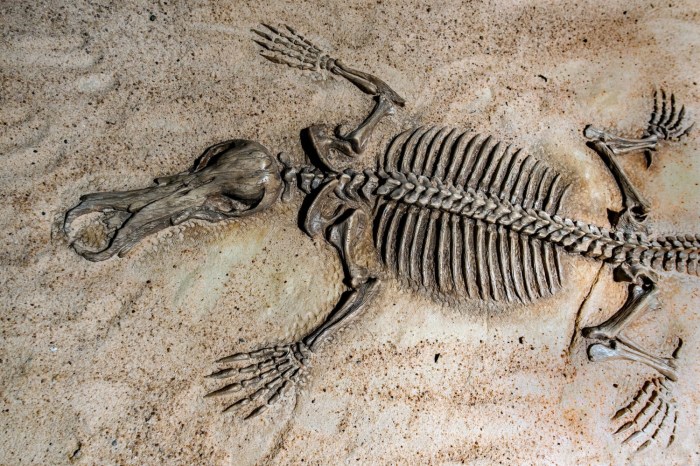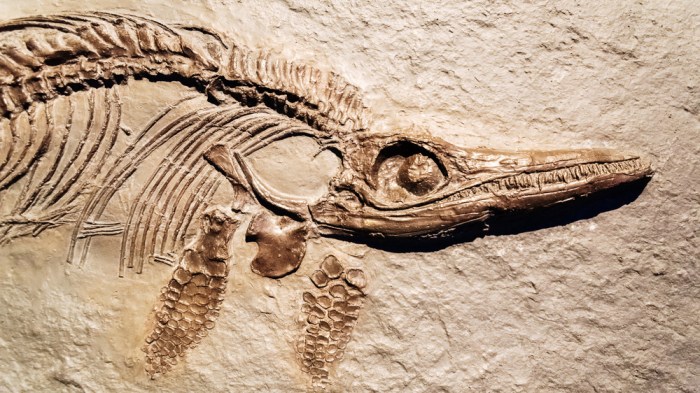What does the latin word fossilis mean – What does the Latin word “fossilis” mean? This question embarks us on an etymological odyssey, uncovering the origins and evolution of a term that has left an enduring mark on science, culture, and beyond.
The word “fossilis” finds its roots in the Latin verb “fodere,” meaning “to dig” or “to excavate.” This etymology hints at the deep connection between “fossilis” and the realm of excavation and discovery.
Etymology of Fossilis

The Latin word “fossilis” originates from the verb “fodere,” meaning “to dig” or “to excavate.” It literally translates to “that which is dug up” or “excavated.”
Other Latin words with similar roots include:
- Fodio: to dig
- Fossa: ditch, trench
- Fossor: digger
Historical Usage of Fossilis

In ancient Latin literature, “fossilis” initially referred to objects unearthed during excavations, such as buried treasures or ancient artifacts. Over time, its meaning expanded to encompass natural objects found underground, including minerals, gemstones, and fossils.
Examples of ancient texts where “fossilis” appears in this context include:
- Pliny the Elder’s “Natural History”: describes various “fossiles,” including amber, ivory, and petrified wood
- Seneca the Younger’s “Natural Questions”: discusses the formation of fossils and their significance in understanding Earth’s history
Modern Scientific Interpretation
In the 16th century, “fossilis” was adopted into scientific terminology, particularly in the field of paleontology. It was used to describe the preserved remains or traces of ancient organisms found in Earth’s geological formations.
In modern paleontology, a fossil is defined as:
Any preserved evidence of past life, including the remains, traces, or imprints of organisms that have been preserved in Earth’s geological record.
Cognates and Derivatives
The Latin word “fossilis” has cognates and derivatives in various languages, including:
- English: fossil
- French: fossile
- Spanish: fósil
While these cognates share a common etymological root, they have undergone semantic shifts and variations in meaning:
- In English, “fossil” primarily refers to the preserved remains of ancient organisms.
- In French, “fossile” can also refer to minerals and other non-organic materials found underground.
- In Spanish, “fósil” has a broader meaning, encompassing both organic and inorganic remains found in geological formations.
Cultural and Literary Significance

Beyond its scientific usage, the word “fossil” has also gained cultural and literary significance:
- In art, fossils have been depicted as symbols of time, history, and the interconnectedness of life.
- In literature, fossils have served as inspiration for stories and poems about the origins of life, the evolution of species, and the human experience.
- In popular culture, fossils have been featured in movies, television shows, and even fashion.
FAQ Summary: What Does The Latin Word Fossilis Mean
Is the word “fossil” related to the word “excavate”?
Yes, both words share a common etymological root in the Latin verb “fodere,” meaning “to dig” or “to excavate.”
What is the scientific definition of a fossil?
In paleontology, a fossil is the preserved remains or traces of an organism that lived in the past, typically found in sedimentary rocks.
What are some examples of cognates of “fossilis” in other languages?
Cognates of “fossilis” include “fossile” in French, “fósil” in Spanish, and “fossile” in Italian.